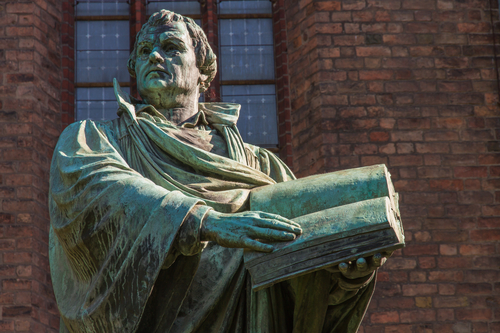
J. Warner Wallace tackled the question, Do Denominational Disagreements Falsify Christianity? recently from an apologetic angle. A common challenge to Christianity is the extent to which we don’t agree with other. If Christianity is true, why so much disagreement? Why so many denominations?
I like the way Wallace tackles the issue. He starts by observing that truth is often complex, and finite beings such as ourselves often disagree on the complexities. This is true not just in Christianity, but even in science. Wallace lists some of the various “theoretical camps” on the origin of the universe and the various types of atheists who don’t agree with each other in their atheism.
Wallace observes that disagreement doesn’t negate the truth. Truth remains truth whether people understand it or agree on it. Paul is saying the same thing, basically, when he says, “Let God be true though every one were a liar.” (Romans 3:4) We can’t judge God by the way people act, and we can’t judge the truth of Christianity by the way the Church acts.
On that last statement, I can imagine someone saying, “Now wait a minute! Shouldn’t we hold the Church to a higher standard? Shouldn’t the Church, of all institutions, be better than secular ones? If Christianity is true, shouldn’t we expect more harmony in the Church?
I actually agree with these criticisms. What about the inquisitions, and Christians burning other Christians at the stake for heresy and Puritans burning Puritans at the stake for supposedly being witches? That sounds like a lot of infighting for a group of people who are called to be “one in Christ”!
These are serious charges against the Church and Christianity. Wallace is right that every human institution under the sun has disagreement, but shouldn’t the Church be different? If God is God and Christianity is true, shouldn’t the Church stand apart?
Jesus called his followers to be like a city set on a hill, like a beacon of truth. He said the world would know his followers by their love for one another, and he prayed for them to be one with each other as he and the Father are one.
We don’t have to dig very deep, or look very far, or think very long before we find examples in history and in current events today that paint a very different picture of the Church. The Church, universal, is fragmented. Even denominations, within themselves, are divided. Division and dissention occur in our local churches on a regular basis.
The skeptics put up a serious challenge to believers when they make the claim that our penchant for disagreement calls into question the truth that we stand for. How do we respond?
Yes, disagreements in the Church do not negate the truth, but how do we put them in perspective? How does our disagreement fit the truth that is revealed in Scripture? (That the world should know us by our love for one another) How do we reflect the love of God to the world as a fractured and broken Church?
I don’t believe I have a complete handle on these things, but I have some thoughts on how we can square the disagreement in the Church with Scripture and how we should respond as believers to this challenge.
Continue reading “Putting Denominational Disagreements in Perspective for the World and the Church”
